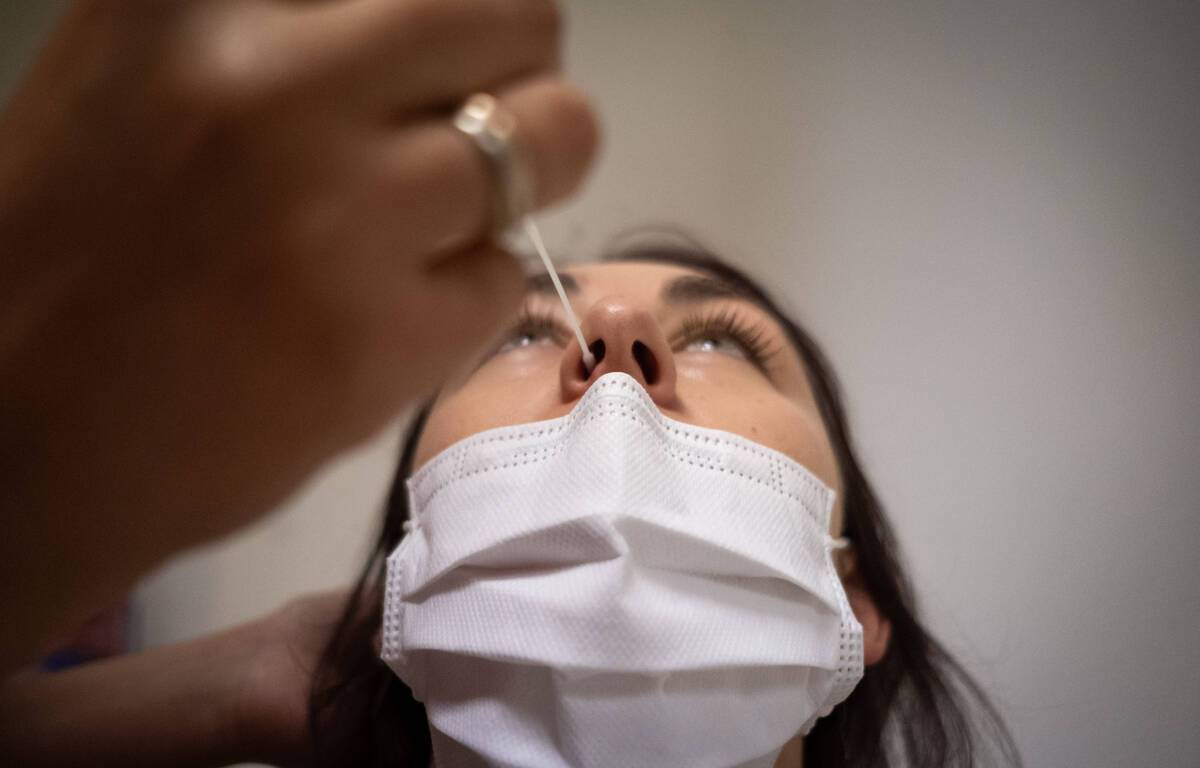D30. J60. J90. Two years ago, at the start of the pandemic, the first testimonies of people infected with the coronavirus still feeling symptoms of the disease several weeks after contracting the coronavirus multiplied on social networks. Often young patients, who initially developed a mild to moderate form of the virus and whose persistent illness will quickly bear a name: the long Covid. Or when the disease seems to be resisting in the body even though it no longer harbors the virus.
While anti-Covid vaccines have a moderate ability to prevent the transmission of the virus, in particular against the Omicron variant, which is associated with immune escape, we do know that they protect against severe forms of the disease. And that’s not all: according to several recently published scientific studies, vaccination would reduce the risk of developing a long Covid. And after an infection, it could alleviate lingering symptoms.
A protective effect observed
In the UK, the Health Safety Agency has sifted through the results of eight published studies on the subject. According to six of them, people vaccinated against Covid-19 who were later infected with the virus are less likely than unvaccinated people to develop long Covid. But in proportions that vary from one to another. An American observational study conducted on electronic patient records from the US Veterans Health Administration thus concludes that the risk of presenting symptoms six months after infection is reduced by 13% in vaccinated Covid patients, compared to unvaccinated Covid patients.
A British study, conducted on a sample of approximately 1.2 million people, reports a 50% reduced risk in vaccinated patients of presenting persistent symptoms. Another, which has not been validated by its peers, concludes with a reduced risk of 41%. “These disparate results are not surprising, in the sense that scientists do not all take the same criteria and symptoms to define what long Covid is”, explains to 20 minutes Dr Benjamin Davido, infectious disease specialist and Covid-19 crisis doctor at the Raymond-Poincaré hospital in Garches.
Protection that is not as strong depending on age
« In the under 40s, the age group most affected by long Covid, there is a protective tendency of the vaccine, which is however not easy to assess for this category of patients who most often form forms few or no symptoms of the disease. What is also interesting is that studies show that a two-dose vaccination reduces the risk of long Covid and sequelae by 40% in people over 60, although this is an age group which is more likely to develop serious forms of the disease, requiring hospitalization and which leave sequelae, which in my opinion makes it another form of long Covid, details the infectiologist. We can thus see that vaccination provides protection – interesting but not total – against the sequelae and the persistent effects of the virus”.
A beneficial effect on long forms already declared
According to the Haute Autorité de Santé (HAS), 20% of Covid patients in France still feel symptoms five weeks after their contamination. And one in ten would suffer from a long Covid three months after infection. “I have patients who were infected at the start of the pandemic and who still describe persistent symptoms such as fatigue, shortness of breath, brain fog and other pains,” says Dr. Davido.
Several factors would explain this phenomenon. “High viremia, that is to say the presence of virus in the blood, is associated with an increased risk of recurrence and long Covid, as well as the presence of autoantibodies which will be directed against the organism, but few protective antibodies despite the infection, continues the infectiologist. However, vaccination will stimulate the production of antibodies and thus make it possible to neutralize the passage of the virus in the blood, by reactivating the latent virus in the body. It comes here to support the immune memory of the organism already infected and thus makes it possible to attenuate or even put an end to the persistent symptoms”.
Act as soon as possible
But in this case, it is better not to hang around. Another pre-published US study, conducted by the Covid Patient Recovery Alliance on the records of approximately 240,000 patients infected with the coronavirus in May 2021, finds that people who received their first dose of vaccine after contracting the coronavirus were less likely to develop a long Covid than the unvaccinated and logically, the sooner they receive their injection after infection, the lower the risk of persisting symptoms. “It is better not to wait too long to set up a care, confirms Dr. Davido. I have a patient who keeps the sequelae of her infection and who is not vaccinated. However, vaccination could allow her to clear the virus in her organs, she who has few antibodies. Vaccination must remain at the heart of our anti-Covid strategy, it is a precious tool but which, like drugs, is not 100% effective: there are people for whom it works and others nope. What is certain is that the later the treatment of the long Covid, the more the persistent effects will be difficult to combat ”.
